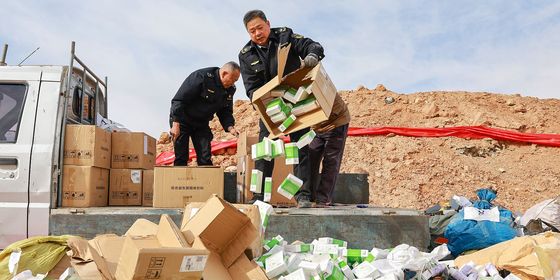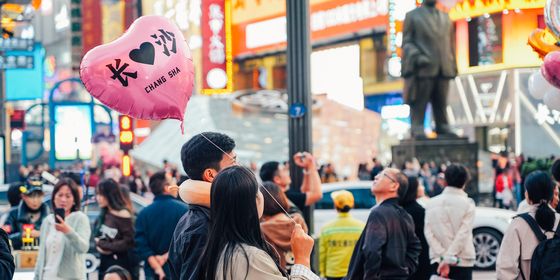Week-long ban on trending searches and celebrity hashtags the latest casualty in ‘internet clean-up’ crackdown
Chinese net-users who rely on social media to catch up the news—so, everyone—are having a tough week. Over the weekend, Sina Weibo, one of China’s most popular social media platforms, suspended its “hot searches” rankings and trending hashtags menu after being invited by China’s internet watchdog to “have a talk.”
According to the Beijing office of the Cyberspace Administration of China (CAC), Sina Weibo has violated the laws and regulations governing cyberspace, spreading illegal information, and negatively affecting the online environment. Sina Weibo has been ordered to conduct a “self-inspection” and make improvements in their management of “harmful information.” Meanwhile, according to a statement from Sina Weibo on January 27, the company has “fully accepted the authority’s criticism” and will be suspending its “hot searches,” “most searched hashtags,” “Weibo Q&A,” and celebrity and “soft” news aggregator functions until February 3.
It’s not the first time that Chinese authorities have moved to “clean up” the internet in the past year. In June, 2017, the CAC shut down dozens of accounts which provided celebrity news and gossip on social media, deeming their content “lowbrow and vulgar trends.” Later that month, the State Administration of Press, Publication, Radio, Film and Television issued a ban on live streaming on three popular web platforms—Sina Weibo, iFeng, AcFun—due to users broadcasting negative commentary on political and social news. Then, in August, the CAC announced that anonymous comments on Chinese websites would no longer be allowed; commenters had to register their real name and personal information to the web platform.
The current crackdown has made netizens understandably discontent that they can no longer find all the hottest celebrity gossip in one place. But fun didn’t stop there. On Sunday, Sina Weibo released a list of topics, including many celebrities’ names, that will be banned from its new “hot search” menus for at least three months. The banned celebrities are suspected of having paid agencies to artificially driving up their views and shares on Weibo, an accusation netizens themselves often level at the “hot search” function. However, they didn’t buy Sina Weibo’s explanation that the banned topics were selected simply based on “abnormal activity”:

The celebrities who often buy “hot searches” haven’t been punished, whereas I go on Weibo every day and have never seen the banned stars

Just a bunch of scapegoats
Not all celebrities are taking their punishment lying down. The team behind actor Sun Honglei, who was once involved in the hashtag “Sun Honglei put a claim of over 100 million RMB against Guazi company” (a used-car trading platform that Sun endorsed and possibly later fell out with), has responded via its official Weibo account that Sun has never raised a claim against the company, nor has he ever taken part in buying “hot searches.”
The team of singer Zhou Bichang, another star on the ban list, has posted, “The money we have all goes toward making music videos; we can’t afford to buy a ‘hot search.’ We won’t take the blame.”
The week-long ban is due to end soon, but netizens are cynical that the internet “clean-up” will result in anything changes that actually beneficial to users. Employers, at least, can savor several more days of increased productivity in the office.












